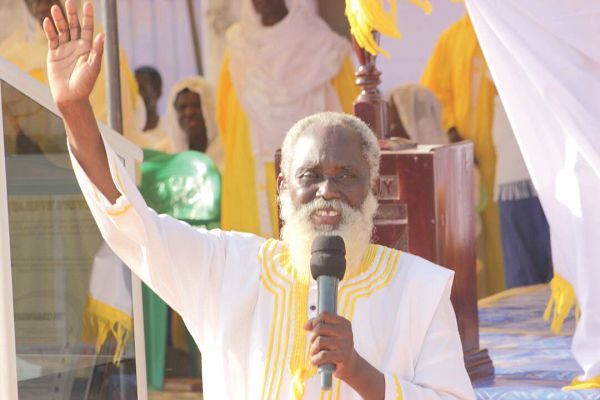Apostle Agbalenyoh Declares Vote-Buying a Sinful Act
“How can citizens cast faithful votes when they have been bribed by political parties like the NPP and NDC? Such actions undermine the integrity of our democracy and make it impossible to eradicate institutional corruption,”

The Presiding Missionary of the Seventh Day Theocratic World Congregation, Apostle Kadmiel E.H. Agbalenyoh, has condemned vote-buying, calling it a sinful and unacceptable act in all forms, whether political, religious, traditional, or cultural.
Speaking during a sermon at the church’s headquarters in Homedakrom (Shalom Shalom), Apostle Agbalenyoh emphasized that both those who engage in vote-buying and those who accept bribes before voting are guilty of a crime against humanity and will face judgment before Almighty God, Yahweh.
- Advertisement -
Vote-Buying as Stealing and Corruption
- Advertisement -
Apostle Agbalenyoh explained that bribery, as a form of stealing and corruption, goes against Yahweh’s commandments. He cited Job 15:34 as the foundation of his sermon, along with several biblical references, including Exodus 20:17, 2 Chronicles 19:5-7, and Matthew 5:13-16, among others, to underscore his point.
According to the Apostle, political parties often bribe individuals, communities, and even religious organizations to solicit votes, a practice he described as dangerous for the moral and political future of Ghana.
“Is it appropriate to distribute money and other incentives to voters?” he questioned. “How can citizens cast faithful votes when they have been bribed by political parties like the NPP and NDC? Such actions undermine the integrity of our democracy and make it impossible to eradicate institutional corruption,” he lamented.
Condemnation of Religious Leaders Accepting Bribes
Apostle Agbalenyoh did not spare religious leaders who accept bribes or act as intermediaries between political parties and communities. He argued that such individuals are unfit to serve as spiritual leaders, citing 1 Samuel 12:3-5 to reinforce his stance.
- Advertisement -
He further linked the act of bribery to covetousness, forbidden by the tenth commandment, and described it as a violation of God’s laws. “Bribery is another form of stealing another person’s legitimate rights or preventing someone from accessing what is rightfully theirs,” he stated.
Biblical Examples of Betrayal and Bribery
The Apostle also drew parallels between modern-day vote-buying and biblical examples of betrayal and corruption. He referenced Judas Iscariot’s betrayal of Jesus Christ for monetary gain (Matthew 26:14-16, 47-50) and Apostle Peter’s rebuke of Simon the Sorcerer, who tried to bribe the apostles for spiritual power (Acts 8:14-21).
A Call for Integrity in Leadership
In his concluding remarks, Apostle Agbalenyoh called on Ghanaians to reject bribery in all its forms and embrace integrity in their socio-political decisions. He warned that leaders who promote or engage in bribery will be held accountable before God.
“The future of Ghana depends on the integrity of its people and leaders. Let us strive for righteousness in all aspects of life—political, religious, and social,” he urged.
By S.O. Ankara || ghananewsonline
- Advertisement -



